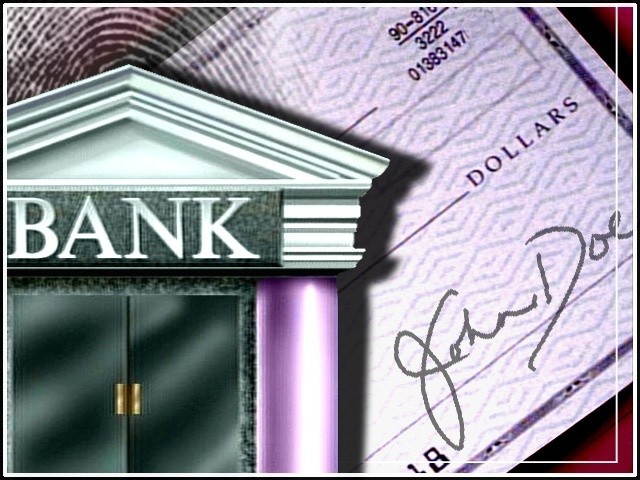WASHINGTON (AP) - All but one of the nation's 30 largest banks are better able to withstand a severe U.S. recession and global downturn than at any time since the financial crisis, the Federal Reserve has determined.
Results of the Fed's annual ``stress tests'' showed Thursday that only Zions Bancorp failed to meet the Fed's minimum level of capital to withstand a crisis. The results showed continued improvement in banks' financial positions since the 2008 crisis, the Fed said. That built on positive results from last year's tests.
The 30 banks tested included Bank of America, Citigroup, JPMorgan Chase and Wells Fargo.
The Fed has conducted stress tests of the largest U.S. banks every year since 2009, when the financial crisis plunged the country into the worst economic downturn since the Great Depression of the 1930s. The annual checkup is designed to measure how well the industry would fare in another severe recession. It aims to ensure that banks could keep lending during such a punishing stretch.
JPMorgan Chase, Morgan Stanley and Bank of America declined to comment on the outcome of their stress tests Thursday. Each planned to release the results of their own internal stress tests later in the day.
Goldman Sachs also declined to comment. A call to James Abbott, Zions Bancorp's director of investor relations, was not immediately returned.
Under the Fed's stress tests' ``severely adverse'' scenario, the U.S. would undergo a recession in which unemployment now at 6.7 percent would reach 11.25 percent, stocks would lose nearly half their value and home prices would plunge 25 percent.
Under the test, the losses projected for each bank are compared with the capital each holds as a buffer.
The Fed said that under the crisis scenario, the 30 banks would suffer combined losses on loans of $366 billion through the fourth quarter of 2015. That's down from projected losses of $462 billion in last year's tests. Fed officials said the change reflected the banks' progress in shedding delinquent and defaulted loans from their balance sheets.
The 30 banks were also tested on how well they would withstand severe downturns in Europe and in Asian countries like China and Japan.
The Fed will announce next week whether it will approve plans by some of the banks to increase dividends or buy their own stock.
Nearly all U.S. banks with $50 billion or more in assets were in the group of 30 that were tested. Together they account for some $13.5 trillion in assets about 80 percent of U.S. banks' total amount. Twelve of the 30 banks were added to the testing roster for the first time this year.
Most of the 30 banks tested, along with hundreds of others, received federal bailouts during the financial crisis. The banking industry has been recovering steadily since then, with overall profits rising and banks starting to lend more freely. The banks have mostly repaid the taxpayer bailouts.
Zions, the only bank to fall short this year, is based in Salt Lake City. It slid to a loss in the fourth quarter as it booked hefty charges related to losses on investment securities and other one-time items.
Last year, government-owned Ally Financial Inc. was the only bank that failed. In this round, Ally passed.
The Fed also concluded last March that Wall Street powerhouses JPMorgan Chase & Co. and Goldman Sachs Group Inc. needed better plans for coping with a severe downturn and gave the banks until September to revise them. The two banks were allowed to increase their dividends and buy back their stock on condition they submitted revised capital plans that satisfied the Fed.
At the same time, the Fed approved requests outright from 14 of the 18 banks tested, including Bank of America Corp., Citigroup Inc., Morgan Stanley and Wells Fargo & Co.
But the Fed forbade Ally and BB&T Corp. from making any dividend increases and share buybacks they may have been seeking.
Next Wednesday, the Fed will announce whether it has approved each bank's request, if one has been made, to raise dividends for shareholders. Its decisions will be based on how each bank would fare in a severe recession if it increased its payout.
Raising dividends costs money. The government doesn't want banks to deplete their capital reserves, making them vulnerable in another recession.
The other banks tested were: American Express Co., Bank of New York Mellon Corp., BBVA Compass Bancshares Inc., BMO Financial Corp., Capital One Financial Corp., Comerica Inc., Discover Financial Services, Fifth Third Bancorp, HSBC North America Holdings Inc., Huntington Bancshares Inc., KeyCorp, M&T Bank Corp., Northern Trust Corp., PNC Financial Services Group Inc., RBS Citizens Financial Group Inc., Regions Financial Corp., Santander Holdings USA Inc., State Street Corp., U.S. Bancorp and UnionBanCal Corp.
Monday
August 25th, 2025
4:49PM









